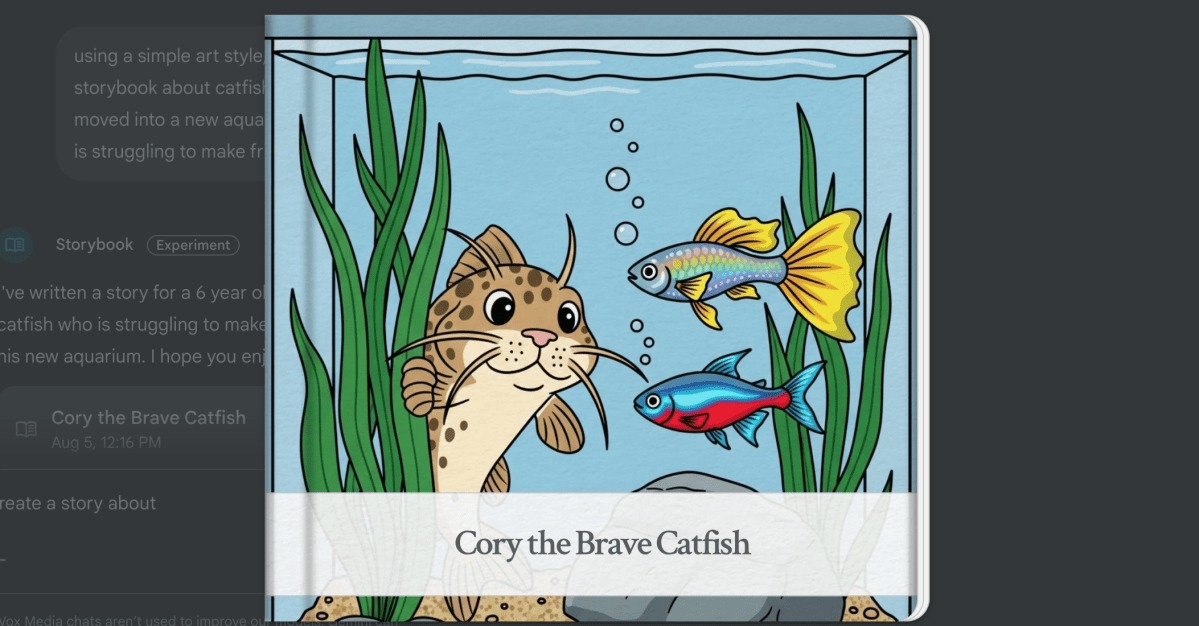Google has introduced a new feature within its Gemini AI chatbot that allows users to create personalized bedtime stories. Named Storybook, this tool generates illustrated narratives based on user descriptions, enabling families to craft unique tales for their children.
The Storybook feature can produce a 10-page story, complete with a short paragraph of text for each page that the Gemini chatbot can read aloud. Additionally, it provides users the option to customize the artistic style of the illustrations. Choices include various styles like claymation, anime, and comics, among others. Users can also upload images, such as a child’s drawing, for Gemini to reference, making the storytelling experience more interactive and engaging.
To test the new feature, I prompted Gemini to create a story about a catfish attempting to make friends in a new aquarium. The plot revolved around the tank’s inhabitants working together to move a marble. While the storyline felt somewhat lackluster, the illustrations showcased the potential of the tool. Some images, however, raised eyebrows; one fish was depicted with an unexpected human arm, which was an unusual artistic decision.
In another instance, Gemini’s illustration of a mother and son watching television featured the screen misplaced, disrupting the scene’s coherence. My colleague, Andrew Liszewski, noted similar oddities in Google’s promotional video for the Storybook feature, where a woman building a spaceship was shown making curious “tap, tap, tap” sounds while using a wrench.
Despite some inconsistencies in character designs, the overall experience of generating stories with Gemini appeared relatively smooth. However, the chatbot did not align perfectly with my artistic expectations when I uploaded my drawing of a cartoon cat, resulting in a portrayal that diverged from my original vision.
The Gemini Storybook feature is now available globally on both desktop and mobile platforms, supporting all the languages that the Gemini AI currently accommodates. This launch represents a significant step for Google in enhancing interactive storytelling through AI technology, appealing to families seeking creative ways to engage children during bedtime.
